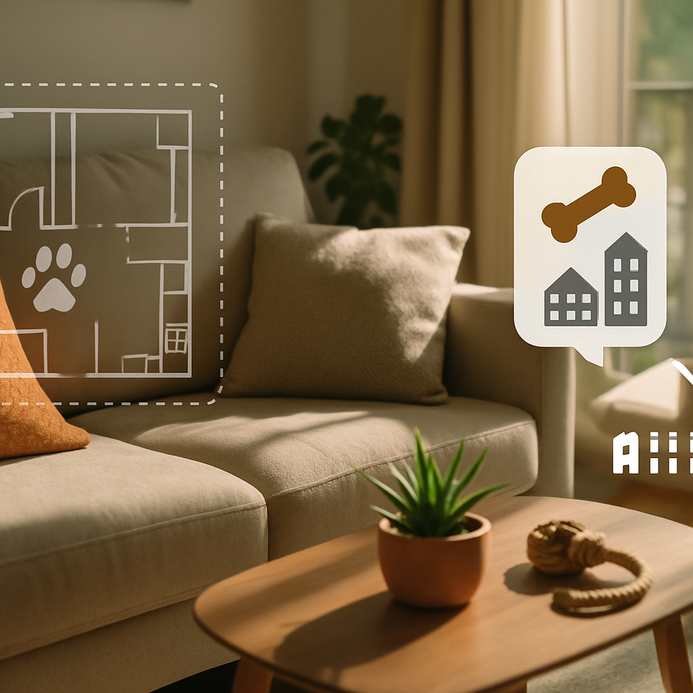COVID-19 and Real Estate: What Really Happened?

The COVID-19 pandemic has had a profound impact on the real estate sector globally, and India is no exception. The effects have been multifaceted, influencing various segments of the market, from residential to commercial properties. India’s real estate market experienced a swift recovery following the initial lockdown phase. While the global real estate market faced prolonged downturns, India’s recovery was notably quicker. For instance, the US real estate market saw a decline in home sales by 18% in May 2020, while India’s major cities reported a lesser decline and quicker recovery by the end of 2020. According to a report by JLL India, residential sales in Q3 2020 increased by 34% compared to Q2 2020, demonstrating a strong rebound in demand. Let us understand this demand in a better detail, to be able to better invest in the real estate.
Residential Real Estate after COVID-19

Demand and Sales
According to Knight Frank India, residential sales in the top eight Indian cities increased by 51% in H2 2020 compared to H1 2020. Unlike many global markets that saw sharp declines, residential property prices in India remained relatively stable. For example, Mumbai, Hyderabad, and Bengaluru saw a price correction of only 1-2% in 2020.
Short-Term Disruption: The initial phase of the pandemic, marked by strict lockdowns, brought residential real estate transactions to a near halt. Site visits, a critical part of the buying process, were impossible, leading to a steep decline in sales.
Shift in Preferences: As remote working became the norm, there was a noticeable shift in buyer preferences. Demand increased for larger homes with dedicated office spaces, homes in peripheral areas with better living conditions, and properties in smaller towns and cities as people moved away from crowded urban centres.
Affordable and Mid-Segment Housing: The demand for affordable and mid-segment housing saw a relative boost compared to luxury housing. Government initiatives like the Pradhan Mantri Awas Yojana (PMAY) also provided some support to this segment.
Unveil the 50-50 payment plan
Pricing
Correction in Prices: The economic uncertainty led to a correction in property prices, with many developers offering discounts, flexible payment plans, and other incentives to attract buyers.
Stability Post-Pandemic: As the situation stabilized, and the economic upturns and downturns became more or less equalised considering a long-term basis.
Commercial Real Estate after COVID-19

Office Space
The widespread adoption of remote working drastically reduced the demand for office spaces. Some companies started looking for smaller, more flexible office spaces adopting a hybrid-working model, while others considered relocating to less expensive areas.
Retail Space
Retail spaces, particularly in shopping malls and high streets, experienced a severe decline in footfall due to lockdowns and social distancing norms. The surge in e-commerce further impacted brick-and-mortar retail spaces. Many retailers started reconsidering their physical store presence and invested more in online platforms.
Hospitality Sector
It was one of the hardest hit. Travel restrictions, both domestic and international, led to a sharp decline in tourism and business travel, resulting in significant losses for hotels and resorts. As travel restrictions eased and domestic tourism began to pick up, the sector started to recover. However, the pace of recovery has been slow, with a greater emphasis on health and safety measures.
Logistics and Industrial Real Estate
The logistics and warehousing segment saw increased demand due to the rise in e-commerce and the need for efficient supply chain management. Companies required more warehousing space to meet the growing online consumer demand. There was a shift towards Grade-A warehousing, which offers better facilities, safety standards, and compliance with global standards.
Policy and Regulatory Changes

The Indian government introduced several measures to support the real estate sector. These included the extension of timelines for project completion, reduction in stamp duty in some states, and offering relief under the Atmanirbhar Bharat Abhiyan. The enforcement of the Real Estate (Regulation and Development) Act, 2016 (RERA), ensured greater transparency and accountability, which helped in boosting buyer confidence during uncertain times.
Technological Adoption
Virtual tours, online bookings, digital payments, and customer service through AI and chatbots became more common. Property technology (PropTech) companies saw significant growth, offering innovative solutions for property management, transaction processes, and customer engagement.
Investment Trends

Investors became more cautious, focusing on asset classes with stable returns. There was a preference for residential, logistics, and industrial real estate over commercial office spaces and retail. Despite the challenges, India continued to attract foreign investment in real estate, particularly from institutional investors looking at long-term growth prospects.
Reports suggest a 40% drop in residential sales in Q1 2021 compared to Q1 2020. Job losses and income insecurity made potential buyers cautious, postponing property purchases. Movement restrictions disrupted supply chains, hindering the availability of labour and materials. This resulted in project delays, pushing back completion timelines and impacting cash flows for developers. The liquidity crisis deepened for developers due to stalled sales and project delays. Banks became wary of extending credit, further squeezing finances.
Despite these drawbacks, the real estate showed a quick and composed elastic character, and not being affected as much as its counterpart markets. This shows the potential, worth, and impact of the real estate market and investment over other options. India is a country wherein with a culture of increasing freelancing, more people from costly countries will come and settle to get the dollars scored more efficiently for their lives. India portrays the epitome of potential, and its real estate market is no exception.
FAQs
Initially, there were concerns that the pandemic might deter NRI investments. However, a dip in property prices due to the slowdown made Indian real estate a more attractive investment option for some NRIs seeking higher returns. Additionally, the depreciation of the rupee against foreign currencies made it more affordable for them to invest.
1. Streamlining approval processes for new projects.
2. Providing tax benefits for developers to complete stalled projects.
3. Introducing infrastructure development initiatives to boost specific sectors like affordable housing.
4. Encouraging institutional investments in real estate through Real Estate Investment Trusts (REITs).
Metro cities experienced a mixed impact with some areas seeing a price correction due to reduced demand, while certain premium locations remained stable. Tier-2 and Tier-3 cities saw increased interest and stability in prices as people moved away from crowded metros in search of safer and more affordable living spaces.
The pandemic led to stricter lending criteria from banks due to increased risk of defaults, although the Reserve Bank of India’s (RBI) measures to reduce interest rates helped in making home loans more affordable. There was also an increase in loan restructuring and moratorium requests from borrowers.













